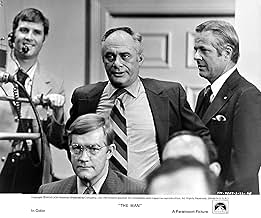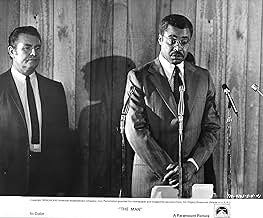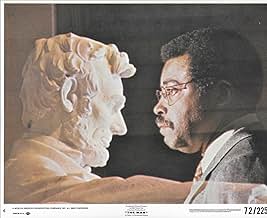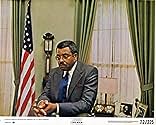African American senator Douglas Dillman becomes designated survivor of a tragic accident that kills the U. S. President. Eventually, Dillman becomes the first black U. S. President and atte... Read allAfrican American senator Douglas Dillman becomes designated survivor of a tragic accident that kills the U. S. President. Eventually, Dillman becomes the first black U. S. President and attempts to end the bigotry standing in his way.African American senator Douglas Dillman becomes designated survivor of a tragic accident that kills the U. S. President. Eventually, Dillman becomes the first black U. S. President and attempts to end the bigotry standing in his way.
- Director
- Writers
- Stars
- Awards
- 1 nomination total
- Wheeler's Lawyer
- (as Martin Brooks)
- Director
- Writers
- All cast & crew
- Production, box office & more at IMDbPro
Featured reviews
A Profound Film with a Profound Message
Please get the story straight
The Presidency falls to a surprizing fourth in line.
It's a great story and I don't understand why it isn't on video yet.
The only small flaw is that it is time dated with the premise of Apartied in South Africa. Everyone write to the studio and get them to put it out on video. It has appeared on TV but they cut it to ribbons and destroy the continuity. -ARBY
Presidential Succession and Bigotry
Enter US Senator Douglass Dillman, who is president pro tempe of the senate. He is also black. He accepts the presidency to the discontent of many cabinet officials, especially the secretary of state. He would be president if not for Dillman.
Racial feelings are revealed among several politicians as Dillman sits in the oval office, determined to overcome the bigotry of those around him and to be as good a president as he can be.
An early vehicle for James Earl Jones, who as Dillman, is brilliant. Excellent performances by the supporting cast. Hopefully, this film will one day be on DVD or VHS. It's also a good potential historical lesson to be absorbed by Americans if this situation should ever happen.
Rare Treat
Starvation
Yet.
It's obvious ABC got a higher quality product than they wanted. The Movie of the Week series cranked out one piece of clichéd garbage after another during its 1969-1976 run, and the occasional brilliance (That Certain Summer, Katherine, Duel come to mind) would catch everyone by surprise.
What do you do with something good, when you're regularly paying for crap?
Sheesh, people might begin to expect quality.
So, ABC puts The Man into limited release. The movie looks like a TV flick because it's on a MOTW budget. Probably made $37.26 nationwide. That'll teach 'em to make something good!
But.
I'd put The Man in the box set of post-Twilight Zone Rod Serling work along with the white-knuckled Seven Days in May, the original Planet of the Apes, and some of the better episodes of The Night Gallery. Serling was a great writer, but the trouble with The Man is that it's so starved for time and funds, so shoestrung by lowest common denominatorism from the network, that the movie never gels.
That's catastrophic for the viewer and mundane for the world of networkthink.
Did you know
- TriviaJames Earl Jones was interviewed about portraying a fictional black U.S. president a few days before Barack Obama was sworn in as President. Jones said that he had misgivings about the film, mostly because they were blindsided when the project (which was planned and budgeted as a TV movie) was released in theaters, and he wished that they'd had more time and resources to make a stronger final film.
- Quotes
Douglass Dilman: We live in a time when violence is offered up as the panacea. The bullet seems to be the final instrument of political discourse. Men die violently, we bury them, we mourn for them and we seek retribution. It's a deadly pattern... a quote from Genesis: "Behold the dreamer. Come now therefore and let us slay him and we shall see what has become of his dream." We cannot murder the tyranny by murdering the tyrant and we cannot murder the dream by murdering the dreamer. And if we justify the taking of any life in the name of our morality, we've done nothing but murder our morality.
- ConnectionsFeatured in The Dick Cavett Show: Episode dated 19 July 1972 (1972)
- How long is The Man?Powered by Alexa
Details
- Release date
- Country of origin
- Language
- Also known as
- ザ・マン~大統領の椅子~
- Filming locations
- Production companies
- See more company credits at IMDbPro







































